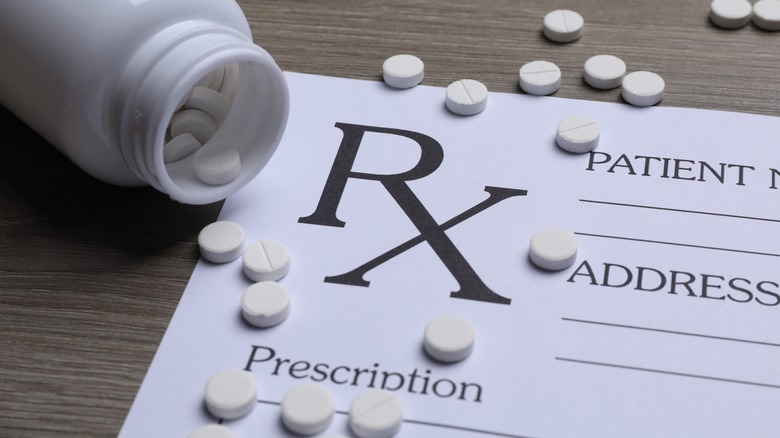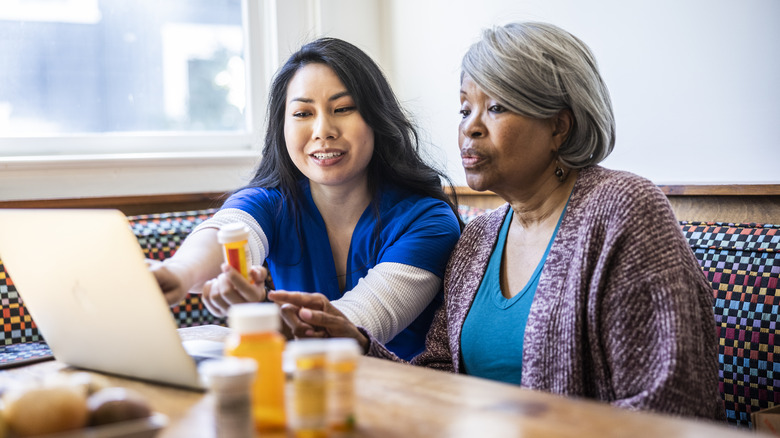Can You Fill A Prescription During A Hurricane? This Emergency Protocol Could Save Your Life
As Florida orders evacuations for people living along the Gulf Coast in anticipation of Hurricane Milton, the Associated Press says some people are reluctant to leave their homes. Some are still exhausted after the devastation from Hurricane Helene, and others fear running out of gas as many gas stations in the Tampa Bay area are already empty.
When you quickly evacuate an area, you might not think about those minor things like bringing enough of your medication to last for several days. It might also be hard to refill a prescription if you choose to shelter in place, especially if you can't get hold of your doctor for authorization.
If your state is under an emergency declaration, many state laws allow a pharmacist to dispense a drug to you without authorization from your doctor. The medication must be "essential to the maintenance of the patient's life or to the continuation of therapy," according to Healthcare Ready's description of the emergency protocol. However, every state is different, so you should be aware of the emergency prescription refill protocol law in your state.
Emergency refill prescription laws by state
If you live in Florida, the emergency prescription refill law goes into effect when there is a public health emergency. You can request up to a 30-day supply of your medication without authorization from your healthcare provider. This is also the case for Arizona, Kentucky, Louisiana, North Carolina, Oklahoma, Oregon, and Texas.
States like California, Delaware, Idaho, Indiana, Iowa, and Montana allow for a pharmacist to dispense a "reasonable quantity" of your medication refill without a doctor's authorization. California only allows this emergency refill prescription protocol to go into effect if the state is under a public health emergency. The other states allow for this emergency protocol during non-specified emergencies.
If you live in Alaska, Hawaii, Illinois, Maine, Massachusetts, Michigan, Minnesota, Nebraska, Nevada, New York, South Dakota, Vermont, Virginia, Wisconsin, Wyoming, or the District of Columbia, there aren't laws that allow for emergency refills. (Here are some other reasons a pharmacist might not be able to fill your prescription.)
Remember your prescriptions during a hurricane
The U.S. Centers for Disease Control and Prevention urges people evacuating to bring their medications with them, especially since many pharmacies might be closed during a hurricane or national emergency. If you decide to shelter in place and cannot drive, have someone drive you to the pharmacy to pick up a week's supply of medication and any other medicines you might need.
If your usual pharmacy has shut its doors during a hurricane or other disaster, you should be able to transfer your prescription to another location, even if it's in another state. As a precaution, it's always a good idea to keep handy a list of your medications, the dosage, and your prescribing doctor's name in a safe place in case you have to evacuate quickly and don't have access to your medication. If you take insulin that's typically refrigerated, avoid freezing it. The U.S. Food & Drug Administration says that insulin can remain effective at temperatures between 59 and 86 degrees for up to 28 days.


